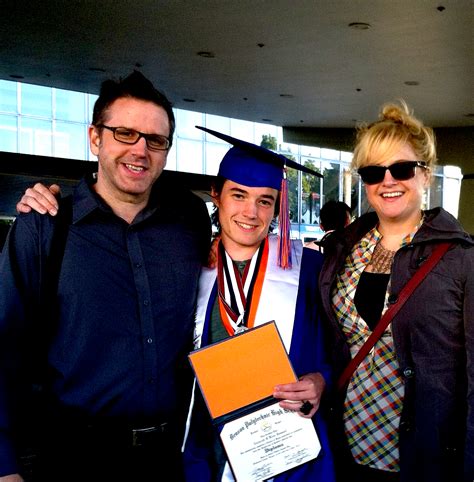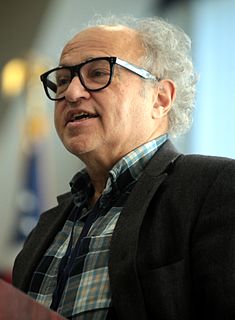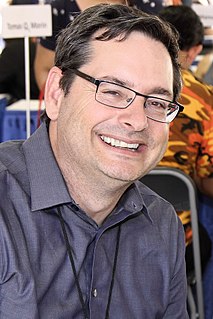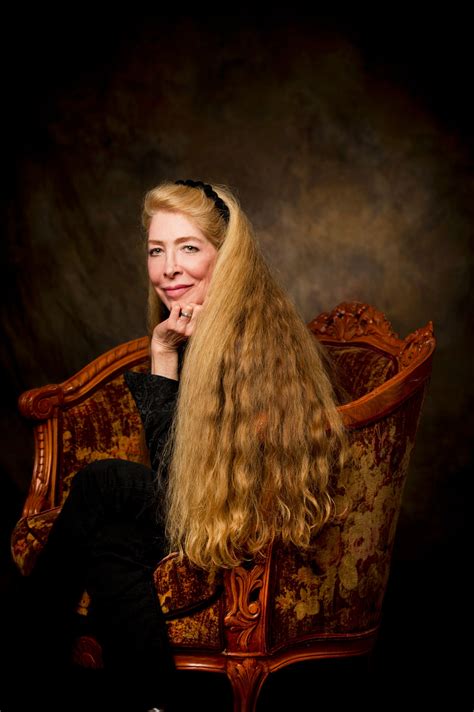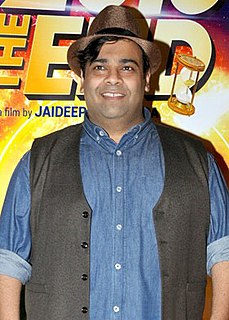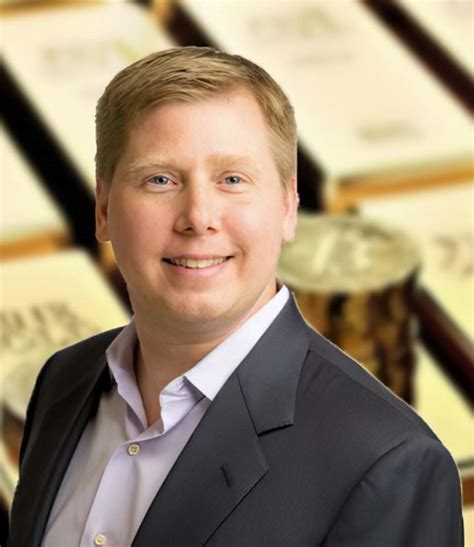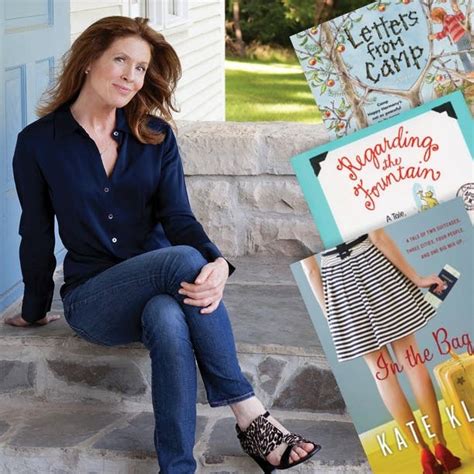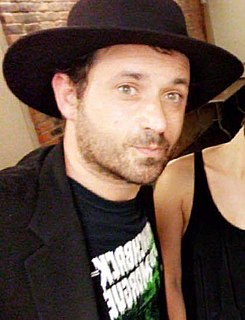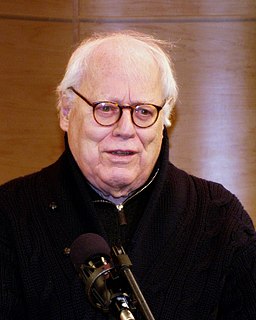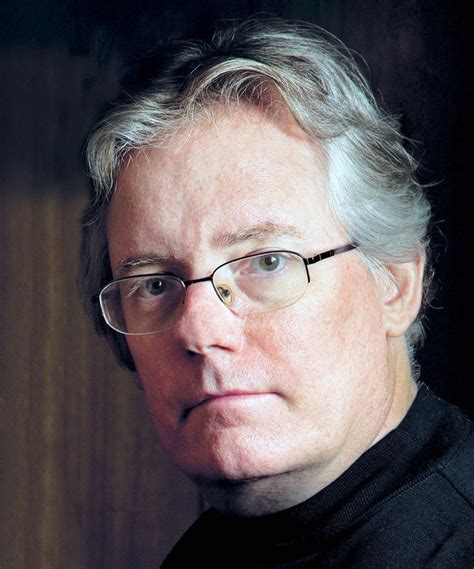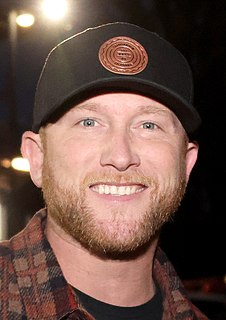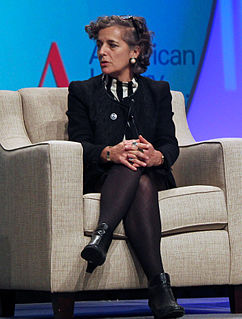Top 995 Desktop Publishing Quotes & Sayings - Page 15
Explore popular Desktop Publishing quotes.
Last updated on December 4, 2024.
But the thought leaders on talk radio and Fox do more than shape opinion. Backed by their own wing of the book-publishing industry and supported by think tanks that increasingly function as public-relations agencies, conservatives have built a whole alternative knowledge system, with its own facts, its own history, its own laws of economics.
A lot of people get to the point in their careers where blurbs are ghostwritten for them, because they're like, "I want to support this person, it's good for my career," and so they get someone at the publishing house to do it, or they copy something from the press release. People write their own blurbs, absolutely, some huge percentage of the time.
I'm very primitive in terms of economics. The kind of new business in which stock gets more valuable because the company grows, but there must be limits to growth. But if publishing is expanding to fill that retail space, it seems like there may be a necessary and unpleasant correction waiting down the road. How many books to people WANT?
All major publishing houses have these big fat biographies sitting there, waiting for people to die. All you have to do is slap on the end and put in on the market. It's that kind of commoditization and completion of your life before you die - and this kind of imposition of a public idea of self that replaces the actual living self - that I find so frightening.
Bloggers and other flavors of lone wolf are publishing heart-wrenching photo-essays from the front line of the recovery effort. Newspapers and TV networks? They're writing about the temperature of the water in some part (they don't specify which) of some damaged reactor, illustrating it with video screen grabs of machinery they don't understand enough to explain.
I think the judging process is full of integrity, compared to some other prizes around the world. The fact that they change the panel of judges every year keeps it from becoming corrupt. I think it's very difficult if you've got judges for life; obviously relationships are cultivated between judges and authors, and publishing houses.
I really think that if there's any one enemy to human creativity, especially creative writing, its self-consciousness. And if you have one eye on the mirror to see how you're doing, you're not doing it as well as you can. Don't think about publishing, don't think about editors, don't think about marketplace.
My idea of that[idea of career] is constantly changing. I mostly just throw it out to the universe and I can't really do much after that. I've never taken the steps to be "successful": I've never had a manager or signed to a publishing house. I've talked to people about it but I've never followed through because it gives me the creeps.
I think that anyone who likes writing views 'The New Yorker' as the, you know, pinnacle of the publishing world. If you get 50 words published in 'The New Yorker,' it's more important than 50 articles in other places. So, would I love to one day write for them? I guess. But that's not my sole ambition.
Many writers hate the shilling process, and I understand that. However, it's really the only thing about the publication process you can somewhat control. You can't affect reviews. But you can try to find your book an audience. One of the problems with the book publishing industry is that their publicity efforts tend to be spent on people who already read, and know how to discover, literary fiction.
The highlight of my career was my first sale, to F&SF, in 1989. Nothing yet has topped that moment. I was weeping in joy and relief. Publishing one story was all that I ever wanted, or expected. Everything since then - award nominations, getting into best-of anthologies, meeting my idols at conventions, drinking with my idols at conventions - has been wonderful, but it's all gravy.
My publishing deal is out of Nashville, my management is split between Nashville and Texas, but we are also getting to play eight other states as well as Canada and Europe this year. I don't want to pigeon-hole myself. When people ask me if I'm Texas or Nashville, I tell them I am just Cody Johnson.
Given the trendlines of digital publishing, where more and more large platforms are profiting from, and controlling, the works of individuals, I can't stress enough: Put your taproot in the independent web. Use the platforms for free distribution (they're using you for free content, after all). And make sure you link back to your own domain.
When Superman was originally created, by Siegel and Shuster, they were two Jewish immigrants that were desperately trying to assimilate into America. They were having a hard time because they were Jewish. They wanted to get in to mainstream publishing but they couldn't. That's why they, and a lot of Jewish guys, went into comic books.
They [academy writing programs] have no concept that the world has changed, that publishing has changed, that filmmaking has changed, and if you're not constantly looking at your education model and adjusting for the change, you'll find yourself teaching antiquity. Like all of these programs that won't accept students who are writing genre fiction - what an institutional ego!
Sadly, as with so much about history's heroes, it's the spotting of potential fame that's the difficulty, whether it's publishing their poems, hanging their paintings, or buying their old underwear. Think of the great men whose lives passed in penury and hacking coughs due to public unawareness that their littlest possession would end up at Sothebys or the basement at Fort Knox.
I've felt pressure to produce long fiction for as long as I've been writing fiction. There's just an incredible bias in the publishing industry toward novels and away from short stories. They're seen as D.O.A. in the marketplace, which seems nuts to me, given that various collections done smashingly and deservedly well in economic terms.
A writer can spend a decade working obsessively on a novel, but in the commerce of publishing, many of the most important decisions about any book will be made based on very short pitches - from literary agent to editor to sales rep to bookstore buyer to a potential reader standing in the bookstore, asking, 'What's it about?'
The other reason I didn't want to fictionalize it is because one of the main points of publishing a memoir in nonfiction was that I wanted to write about what had been a very lonely experience. The books that most saved my life as a kid were the ones that articulated lonely experiences that I had thought were mine alone.
My definition of media? 'Anything which owns attention.' This could be a game or, perhaps, a platform. Ironically, the media tends to associate media with publishing - digital or otherwise - which, in turn, is too narrow a way to consider not only the media but also the reality of the competitive landscape and media-focused innovation.
I actually produced other people's vocals for a long time when I first signed my publishing deal and I had just sort of decided that I only wanted to be a writer. I would be in all of these writing sessions, and a lot of times my publisher would say, "You should get a demo singer to sing it because then it doesn't identify as a Solange song."
Before I wrote my first novel, 'The Expats,' I spent nearly two decades at various arms of publishing houses such as Random House, Workman, and HarperCollins, mostly as an acquisitions editor. But a more accurate title for that job might be rejection editor: while I acquired maybe a dozen projects per year, I'd reject hundreds upon hundreds.
Kindle Singles is publishing on skates. It prints like lightning; our book meets readers in hours. I've spent so many years waiting for publishers to consider whether they wanted to print a book of mine, making contracts, taking months to fit it into the Fall list or the Spring list, fitting it into an advertising plan.
I never actually sought out an agent or a publishing house. A friend of mine named David Simmer got wind of what I was doing, and he sent one of my books to a literary lawyer in Los Angeles. He loved it, and he sent it to other people, including an agent, and he picked me up, and that's how 'Bird Box' got to where it is now.
A friend of mine who is in the publishing business knew I was writing a book, and he said, 'Have you said anything yet about the good guy? Because I know you spend so much time with the bad guys.' Because they're fun. So then you have to make the good guy fun, in order to compete. That's the challenge.
I have no trouble publishing in Soviet astrophysical journals, but my work is unacceptable to the American astrophysical journals.
[Referring to the trouble he had with the peer reviewers of Anglo-American astrophysical journals because his ideas often conflicted with the generally accepted or “standard"” theories.]
Trade book publishing is by nature a cottage industry, decentralized, improvisational, personal; best performed by small groups of like-minded people, devoted to their craft, jealous of their autonomy, sensitive to the needs of writers and to the diverse interests of readers. If money were their primary goal, these people would probably have chosen other careers.
I remember Stephen King did a fundraiser one time with J.K. Rowling and he was very impressed with her. But we talk a lot about publishing, bookselling, and book writing. He's been around for ten years longer than me and was a bestseller right off the bat. And he's seen and done everything. It's rare to be with somebody who has been through all of that.
On the whole, infinity is a fairly palpable aspect of this business of publishing, if only because it extends a dead author's existence beyond the limits he envisioned, or provides a living author with a future he cannot measure. In other words, this business deals with the future which we all prefer to regard as unending.
I'm feeling more and more thoughts that aren't songs, just reflections. I'm always been very shy and in some ways a prisoner in one language and I feel that the liberation of creativity has to be in all senses. So I've been deciding to publishing something very simple but very small at the same time, nothing egocentric.
It really gets me when the critics say I haven't done enough for the economy. I mean, look what I've done for the book publishing industry. You've heard some of the titles. 'Big Lies,' 'The Lies of George W. Bush,' 'The Lies and the Lying Liars Who Tell Them.' I'd like to tell you I've read each of these books, but that'd be a lie.
My first job out of college was as an editorial assistant in a New York publishing house. Being an editorial assistant is the purgatory would-be editors must endure before they can ascend the ladder and begin acquiring books on their own. I spent a year filing paperwork, writing copy, and typing rejection letters.
I know well enough that very few people who are supposedly interested in writing are interested in writing well. They are interested in publishing something, and if possible in making a "killing." They are interested in being a writer not in writing. . . If this is what you are interested in, I am not going to be much use to you.
Today in many western countries, nobody dares question the Holocaust whose nature is questionable. According to the reports I have received, in America if people decide to write something against homosexuality on the basis of psychological and sociological principles, they will be prevented from publishing their work. How is it that these people feel obligated to respect freedom of expression?
Harvard's Kennedy School of Government asked me to serve as a fellow at its Shorenstein Center on the Press, Politics, and Public Policy. After my varied and celebrated career in television, movies, publishing, and the lucrative world of corporate speaking, being a fellow at Harvard seemed, frankly, like a step down.
Publishing a book is like stuffing a note into a bottle and hurling it into the sea. Some bottles drown, some come safe to land, where the notes are read and then possibly cherished, or else misinterpreted, or else understood all too well by those who hate the message. You never know who your readers might be.
What, for me, was exciting about America was just this extraordinary, complex, difficult, fascinating country, and Britain can feel very small. London, in particular, feels small because everything happens there, so you have publishing, politics, you have finance; everything in Britain happens in London.
It's useful to be born in a different culture because you see things that are not obvious. I come from France. In France, there isn't a pretense of objectivity in publishing. I discovered - and I don't agree with it - that in the US, the New York Times or The New Yorker has to pretend to be objective, and if they present this point of view then they have to also present the other side.
Say you're an American novelist, published by the largest publishing house in the world. Their goal is to make as much money from you as possible, to have as many people read your book in as many formats as possible. How can you hope to speak intimately to the numbers of people that represent the book sales required?



